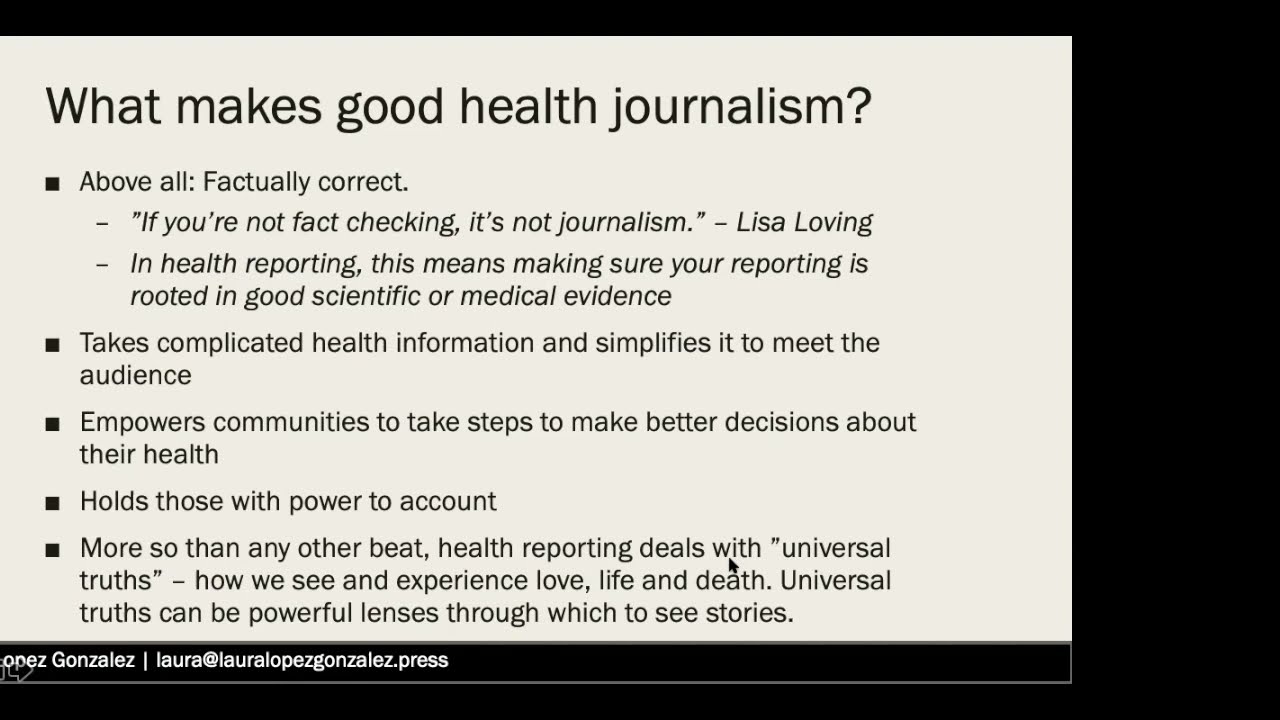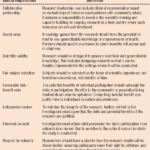
As the world continues to grapple with the COVID-19 pandemic, there is a growing appreciation for medical journalism and its role in promoting public health awareness. Medical journalism has long been an essential component of health reporting, helping to inform and educate the public on important health issues.
But what exactly is medical journalism? Who are the people behind it, and how do they operate? What are the pros and cons of this field, and what alternatives exist? How can aspiring medical journalists get started, and what tips can they rely on? This article explores these and other pressing questions surrounding medical journalism and public health awareness.
Who Are Medical Journalists?

Medical journalists are reporters who specialize in covering health and medicine. They are responsible for gathering, interpreting, and disseminating information related to health topics, including research findings, clinical trials, public health policies, and patient experiences. Medical journalists may work for newspapers, magazines, websites, or broadcast media outlets, and they typically have advanced degrees in journalism or related fields.
Medical journalists must be able to communicate complex scientific concepts in a way that is accessible to the general public. They often collaborate with scientists, doctors, and other experts to ensure accuracy and comprehensiveness in their reporting.
What Is Medical Journalism?

Medical journalism is the practice of reporting on health and medicine-related topics. It encompasses a broad range of subjects, including disease outbreaks, medical breakthroughs, healthcare policy, and personal health stories. Medical journalists use their expertise in reporting and writing to deliver accurate and engaging news stories that help readers and viewers make informed decisions about their health.
One of the most critical aspects of medical journalism is its ability to promote public health awareness. By informing the public about emerging health issues and best practices for prevention and treatment, medical journalists play a vital role in keeping communities healthy and safe.
When Did Medical Journalism Begin?

Medical journalism has been around for centuries, dating back to the early days of medical literature. In the 1600s, medical journals began to emerge as a way for physicians to share their research and observations with one another. By the 1800s, medical journalism had evolved into a more formalized field, with the publication of several major medical journals.
In the 20th century, medical journalism began to expand into mainstream media outlets, with newspapers and magazines devoting more space to health-related stories. With the rise of digital media in the 21st century, medical journalism has become more accessible than ever before, reaching audiences all over the world through websites and social media platforms.
How to Become a Medical Journalist

Becoming a medical journalist requires a combination of education, experience, and passion for the subject matter. Most medical journalists have a degree or advanced training in journalism, along with a strong background in science or medicine. Internships or volunteer work in healthcare settings can also be a valuable way to gain hands-on experience.
Medical journalists should possess excellent research and writing skills, as well as a deep understanding of scientific concepts and terminology. They must be able to ask insightful questions, analyze data, and communicate complex ideas in a clear and concise manner.
Pros and Cons of Medical Journalism
Like any profession, medical journalism has its advantages and drawbacks. Some potential pros and cons of medical journalism include:
Pros:
- The ability to make a meaningful impact on public health awareness
- Exposure to cutting-edge research and medical breakthroughs
- Opportunities to interview top scientists and doctors in the field
- The potential for high visibility and recognition as a leading expert in the industry
Cons:
- High demand for accuracy and attention to detail, which can be stressful
- Limited job opportunities in some geographic areas
- Long hours and tight deadlines, especially during healthcare crises
- The need to stay up-to-date with constantly evolving scientific research
Alternatives to Medical Journalism
While medical journalism is an essential component of health reporting, there are several alternative career paths that aspiring healthcare communicators can consider. These include:
- Health education and promotion
- Public relations for healthcare organizations
- Medical writing and editing
- Science writing
- Healthcare marketing and advertising
Each of these fields requires different skill sets and educational backgrounds, but all offer opportunities to promote public health awareness and contribute to the healthcare industry.
Step-by-Step Guide to Writing a Medical News Story
Writing a medical news story requires careful research, analysis, and writing skills. Here’s a step-by-step guide to crafting a high-quality medical news story:
- Choose a relevant topic: Select a topic that is timely, newsworthy, and relevant to your audience.
- Conduct thorough research: Gather as much information as possible about the topic, including background information, research studies, and expert opinions.
- Analyze the data: Use critical thinking skills to evaluate the research and determine its significance in the field.
- Craft a compelling story: Write a clear, concise,and engaging story that highlights the most important aspects of the research or topic.
- Include expert opinions: Incorporate quotes and insights from medical professionals or researchers to add depth and context to the story.
- Use plain language: Make sure the story is accessible to a wide audience by avoiding jargon and technical terms whenever possible.
- Fact-check and edit: Double-check all facts and figures, and make sure the story is free of errors and typos before submitting it for publication.
How Does Medical Journalism Compare to Other Forms of Journalism?
Medical journalism differs from other forms of journalism in several key ways. Unlike political or sports reporting, medical journalism requires a deep understanding of scientific concepts and terminology. Medical journalists must be able to analyze complex data and translate it into clear and concise language for their audiences.
Additionally, medical journalism often has a more direct impact on public health and safety than other types of reporting. By covering emerging health issues and promoting best practices for prevention and treatment, medical journalists play a vital role in keeping communities healthy and informed.
Tips for Aspiring Medical Journalists
If you’re considering a career in medical journalism, here are some tips to help you get started:
- Build a strong foundation in journalism and science through courses, internships, or volunteer work.
- Develop relationships with healthcare professionals and scientists in your area.
- Attend conferences and events related to health and medicine to stay up-to-date on emerging trends and research.
- Network with other medical journalists to learn about job opportunities and best practices.
- Be prepared to work hard and meet tight deadlines, especially during healthcare crises.
The Best Medical Journalism Outlets
There are numerous outlets for medical journalism, ranging from traditional print publications to digital media platforms. Some of the best-known medical journalism outlets include:
- The New York Times Health
- CNN Health
- NPR Health News
- The Lancet
- JAMA (Journal of the American Medical Association)
Each of these outlets offers a unique perspective on health and medicine, and all are dedicated to promoting public health awareness through high-quality journalism.
Conclusion
Medical journalism is a vibrant and essential field that plays a critical role in promoting public health awareness. Whether you’re interested in becoming a medical journalist or simply want to stay informed about emerging health issues, medical journalism is an invaluable resource for anyone looking to make informed decisions about their health.
Through careful research, clear writing, and a commitment to accuracy and accessibility, medical journalists help keep communities healthy and safe. By understanding the intricacies of medical journalism and its role in shaping public health discourse, we can all become better informed and more engaged advocates for our own well-being.
FAQs
Q: What qualifications do I need to become a medical journalist?
A: Most medical journalists have a degree or advanced training in journalism or related fields, along with a strong background in science or medicine.
Q: How can I find job opportunities in medical journalism?
A: Check job boards, network with other medical journalists, and attend conferences and events related to health and medicine to learn about job openings.
Q: What are some good resources for staying up-to-date on emerging health issues?
A: Follow reputable news outlets and scientific journals, attend healthcare conferences and events, and consult with healthcare professionals in your area.
Q: What are some common challenges facing medical journalists?
A: Medical journalists must balance the need for accuracy and comprehensiveness with tight deadlines and constantly evolving scientific research.
Q: How can I make my medical journalism stories more accessible to a wider audience?
A: Use plain language and avoid technical jargon whenever possible, and incorporate quotes and insights from medical professionals to add context and depth to your reporting.




